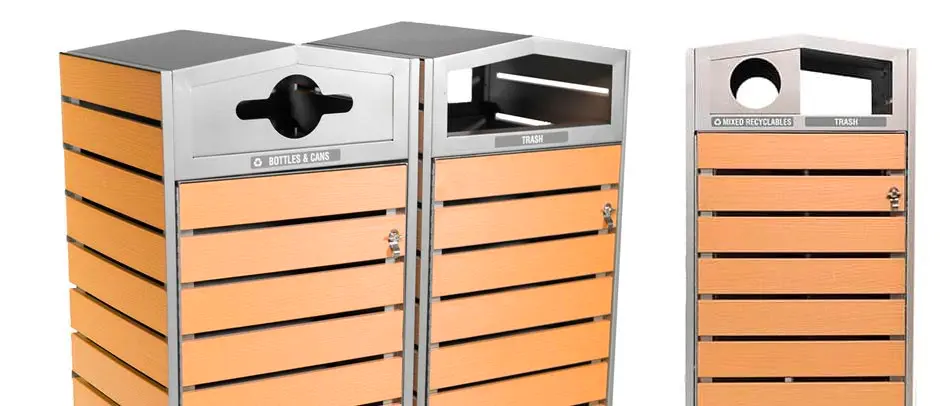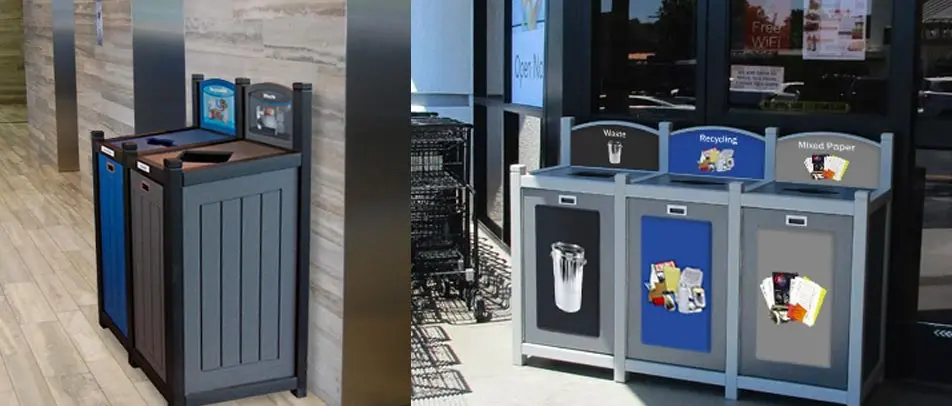
Zero waste is an ideal goal where your trash cans sit empty because everything that can be recycled is being recycled. But as any modern-day “rag-and-bone man” can attest, so much that is recyclable is being tossed into cans and dumpsters or is left rolling along in gutters. Offices in particular are usually plagued with needless waste that piles up and, in the long term, winds up costing money.
Why do people seem to resist doing something that is not only healthy for the earth, but is also healthy for the very place that employs them?
1) Convenience
Convenience, or rather inconvenience, is the number one factor that prevents people from using recycling bins. Not many offices make much more of an effort beyond putting a single bin in the cafeteria. If your employees are allowed to have a bottle of water at their desk (for example), there should be a recycling bin nearby that won’t require the employee to spend so much time away from their workstations. A walk across the building to the cafeteria is much more off-putting than a quick walk away from the desk, which can be a welcome break with a few moments to stretch the legs. Putting bins near restrooms is also convenient. Since they’ll be going there at some point during the work day, why not take advantage of it?
2) Language
Recyclers, some have mused, seem to speak their own language. A bin that is for paper might not mean postcard-type paper, or slick paper such as many ads, brochures, and catalogs are made from. Even though a bin is for cardboard, it might not mean the empty pizza box from the lunch-time mini-party, even though it’s clearly made of cardboard. Yet another bin is for aluminum, but not for food-grade aluminum, which needs to have any labels peeled off first and then get rinsed. At some point, people just throw up their hands and toss it all into the trash.
Employees should be educated on where certain materials go with information on why some things are excepted. The more they understand the process, the more likely they are to be willing to participate.
3) Incentive
Many people know they should recycle, they just don’t understand why. Ads that encourage recycling usually focus on how good recycling is for nature. An office worker needs to know how the company’s recycling programs affect his or her job. They may have some concerns about pollution, but if your attention is on making a living, nature takes a back seat to paying the bills.
Educate your employees on how the company’s recycling efforts help them. Be sure they’re aware of how waste audits can affect the company by reducing waste and improving efficiency. Talk to them about how to reduce or eliminate needless waste. Get them to ask themselves if they really need a hard copy of something, or if it can be left digital. Keeping a scoreboard of waste-reduction can be helpful so they can see how their recycling efforts are paying off.
4) Attainability
“A journey of a thousand miles begins with a single step.” Zero waste is attainable, but for many people it’s a goal that seems a long way off. One of the biggest hurdles may include going packaging free in your cafeteria. If you’re looking to start a zero waste initiative, recycling is a great way to begin.



































































































































 Three Ways to Engage Teams and Clients to Maximize Your Recycling Program Engagement
Three Ways to Engage Teams and Clients to Maximize Your Recycling Program Engagement  How to Integrate Accessibility Into Your Sustainability Planning
How to Integrate Accessibility Into Your Sustainability Planning  Why Park Benches Can Promote Workplace Well-Being
Why Park Benches Can Promote Workplace Well-Being 
